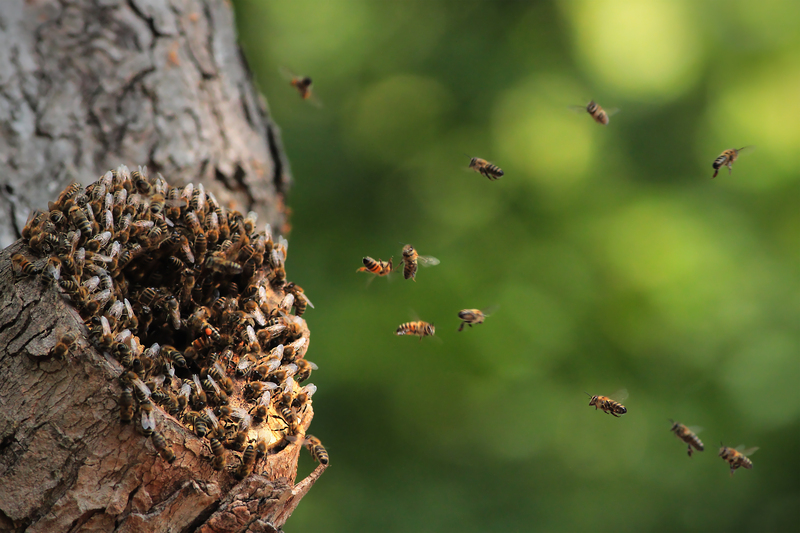Harnessing Nature's Cycle: Turning Waste into Earth's Bounty
Posted on 28/06/2025
Harnessing Nature's Cycle: Turning Waste into Earth's Bounty
In a world grappling with environmental challenges, the secret to a greener future might lie in the very waste we discard. By understanding and harnessing nature's cycle, we have the potential to transform waste into resources, replenishing the earth and paving the way for sustainable living.
The Significance of Nature's Cycle in Resource Management
Nature operates on a system of cycles--nothing is truly "waste" in the natural world. From fallen leaves nourishing the forest floor to decaying animal matter enriching the soil, every byproduct plays a vital role in an intricate web. Harnessing nature's cycle means aligning our human activities to these ecological processes, turning refuse into regeneration.
Understanding the Natural Cycle of Renewal
- Decomposition: Organic matter breaks down into simpler nutrients.
- Nutrient Reincorporation: These nutrients are reabsorbed by plants, restarting the food chain.
- Continuous Loop: Each organism contributes to the next, strengthening ecosystems.
By mimicking this process, we can address modern challenges such as mounting landfill waste, declining soil quality, and resource scarcity.

Common Types of Waste Ready for Transformation
Our daily lives generate a variety of waste streams, most of which can be diverted from landfill and returned to the earth's natural processes.
Organic Waste
- Food scraps (fruits, vegetables, coffee grounds, eggshells)
- Yard trimmings, leaves, and grass clippings
Agricultural Waste
- Crop residues (stalks, husks, leaves)
- Manure and animal bedding
Industrial Byproducts
- Paper and cardboard from packaging
- Woodchips and sawdust
Turning waste into earth's bounty requires creative strategies to reintroduce these resources back into productive use.
Methods for Turning Waste into Earth's Bounty
Sustainable waste management is not just about disposal--it's about transformation. Several techniques allow wastes to be cycled back as resources, benefiting both the environment and our communities.
Composting: Nature's Own Recycling System
Composting is the cornerstone of harnessing nature's cycle. The process converts organic materials such as food scraps and garden trimmings into nutrient-rich humus, a valuable soil amendment.
Composting benefits include:- Reducing landfill dependency
- Improving soil fertility and structure
- Retaining moisture and supporting healthy plant growth
Getting started is easy: collect biodegradable materials, maintain a balanced ratio of "greens" and "browns," ensure adequate aeration, and let microbes work their magic. In a few months, your waste becomes a precious resource for plants, gardens, and farms.
Vermicomposting: Harnessing the Power of Worms
Vermicomposting employs earthworms to break down organic waste, producing a superior quality compost known as vermicast or worm humus. This method is particularly useful for kitchen scraps and can be done in small spaces.
- Faster decomposition rate
- Odor-free, making it ideal for urban households
- Enhanced nutrient content in end product
Biogas Generation: Transforming Organic Waste into Energy
Organic waste isn't just a source of nutrients--it can also provide clean energy. Through anaerobic digestion, bacteria break down waste in the absence of oxygen, releasing biogas (primarily methane).
Biogas can be used for:
- Cooking and heating
- Generating electricity
- Fuel for vehicles
The leftover "digestate" makes an excellent fertilizer, creating a closed loop of waste-to-resource conversion.
Upcycling: Giving New Life to Non-Organic Wastes
While composting and biogas generation deal with organic matter, upcycling focuses on reusing or creatively transforming non-organic wastes--like plastics, metals, and glass--into valuable products. Old tires become playground flooring, shipping pallets are turned into furniture, and bottles are crafted into decorative items.
- Reduces environmental pollution
- Sparks creativity and entrepreneurship
- Lowers production costs for new goods
Biochar: Capturing Carbon and Enriching Soil
Biochar is produced by "cooking" plant matter in low-oxygen environments (a process called pyrolysis). The result is a highly porous char that, when added to soil, helps retain nutrients and moisture, improves soil microbiology, and locks away carbon for centuries.
Benefits of biochar include:
- Soil regeneration and increased crop yields
- Carbon sequestration (fighting climate change)
- Utilization of forestry residues and agricultural waste
Community Initiatives: Scaling the Circular Economy
The success of harnessing nature's cycle depends not just on individual actions but on community participation and systemic support.
Community Composting Projects
- Shared composting sites in urban neighborhoods
- Municipal green waste collection and processing
- Local gardens benefiting from collective efforts
Waste-to-Resource Hubs
- Public-private partnerships for recycling facilities
- Workshops teaching upcycling skills and environmental stewardship
- Small businesses built around sustainable products
By fostering a culture of resourcefulness, these initiatives not only divert waste from landfills but also bolster local economies and strengthen social bonds.
Economic and Environmental Benefits of Closing the Loop
Turning waste into earth's bounty is not just good for the planet--it also makes economic sense.
Reduced Disposal Costs
- Lower expenses for waste collection and landfill maintenance
- Community savings can be redirected to green infrastructure
Job Creation and Local Industries
- New jobs in composting, recycling, and upcycling businesses
- Entrepreneurship opportunities in waste-to-resource innovation
Enhanced Food Security
- Healthier soils lead to more resilient food systems
- Compost and natural fertilizers reduce dependence on chemicals
Environmental Restoration
- Reduced greenhouse gas emissions from landfills
- Improved urban air quality
- Biodiversity support through healthier ecosystems
Challenges and Solutions in Harnessing Nature's Cycle
Despite the proven benefits, several challenges remain in fully realizing the potential of waste transformation.
- Lack of Awareness: Many are unfamiliar with composting and upcycling techniques.
- Infrastructure Gaps: Some communities lack access to collection or processing facilities.
- Policy and Regulation: Outdated waste management laws can hinder innovation.
- Market Readiness: Demand for compost, recycled goods, or bioenergy can fluctuate.
Overcoming Obstacles
Education campaigns, policy incentives, investment in infrastructure, and support for green startups can accelerate the shift to circular, regenerative systems. By integrating waste management into school curricula, offering communal composting bins, and encouraging companies to design products for reuse, we can empower everyone to contribute.
How You Can Start Turning Waste into the Earth's Bounty
Every individual can play a role in mimicking nature's cycle at home, at work, and in the community.
Simple Steps to Begin:
- Separate your waste: Keep food scraps and yard waste out of general trash.
- Start a compost bin or worm farm: Even a small setup on a balcony can make a difference.
- Support local composting initiatives: Participate in community garden projects or drop-off schemes.
- Get creative with upcycling: Turn glass jars into planters or pallets into outdoor furniture.
- Buy products made from recycled or upcycled materials to support the market.
By making these practices a part of daily life, you help close the loop of nature's cycles and foster a healthier, more abundant planet.

The Future: Scaling Up for a Greener World
Global challenges require collective action. With climate change, biodiversity loss, and resource depletion at the forefront, harnessing the natural cycle by turning waste into earth's bounty offers tangible, scalable solutions.
Innovations in technology--such as smart composters, decentralized biogas systems, and AI-assisted waste sorting--will continue to propel us forward. At the same time, traditional knowledge and indigenous practices remind us that working with nature, rather than against it, is the key to true sustainability.
Towards a Circular, Regenerative Society
If households, communities, and industries prioritize turning waste into the earth's bounty, we can restore depleted soils, clean up our cities, create jobs, and ensure resources for generations to come.
Nature's cycle is a blueprint--a call to action for each of us. As we rethink waste and embrace resourcefulness, we sow the seeds of abundance, resilience, and hope for the planet.
Conclusion: From Waste to Wonder
Harnessing nature's cycle is not just a technical challenge, but a cultural transformation. By turning waste into earth's bounty, we renew our relationship with the planet, moving toward a future where nothing is wasted and everything is valued.
Let's work together and carry forward the wisdom of nature in our homes, communities, and industries--turning today's waste into tomorrow's wonder, replenishing the earth and our lives in the process.
Take the first step--separate your waste, compost your scraps, support closed-loop initiatives, and spread the word. The cycle begins with you!
Latest Posts
Gusty Garden? Practical Ways to Reduce Wind Impact
Crucial Gardening Equipment for Outdoor Enthusiasts
Vertical Gardens: Green Wall Wonders
Steps to Develop a Stimulating Garden for Young Minds
Revitalize Your Garden with These 3 Powerful Weed Control Tips

